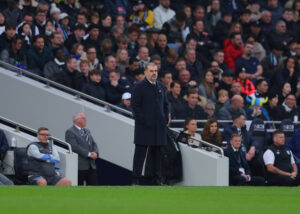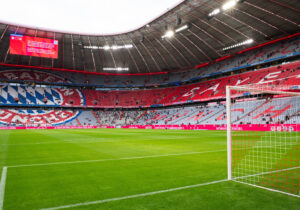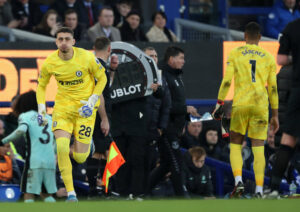Wayne Rooney suffered disappointment in his first match as Derby County’s permanent manager, his side beaten late on by Rotherham United on Saturday night. It is a reminder to the former Everton and Manchester United striker that his new job will be far from easy, but Rooney has always been the type to rise to the challenge, as our in-depth assessment of his Premier League career has shown.
As the 35-year-old’s transition from player to manager quickens and leaves his playing days in the past, now is the time to revisit Rooney’s much-debated international career with England: Some say his record as the country’s all-time top goalscorer forever cements his status as a legend on the international stage, while others argue that it failed to match the expectations set by a meteoric early rise.
Here, we look to contextualise Rooney’s England career and establish what kind of legacy he will leave behind for the younger generations to follow.
Wayne Rooney: England Legacy
Breathing Hope into a Nation
The obvious place to start is with Rooney’s eye-catching early achievements with his country. After all, he was only 17 years and 111 days old when Sven-Goran Eriksson handed him his senior debut against Australia in February 2003.
Reliving the moment in a tribute to BBC’s World Service after Rooney’s international retirement in 2017, the Swedish manager made the point that nothing phased the youngster; not even the prospect of becoming the youngest debutant in English history. “I remember I told him the day before his debut for England that he was going to start. He just said ‘OK’ like it was normal. It was not normal at 17,” Eriksson said of the pair’s conversation.
Given Rooney’s apparent readiness to lead the line for England at such a young age, his achievements at Euro 2004 should not have come as a surprise to so many. The striker ravaged experienced defences throughout the tournament in a sweltering atmosphere in Portugal, scoring twice against Switzerland and doing the same against Croatia. Up and down the country back home, England became swept by a phenomenon known as ‘Roomania’.
Gary Lineker, who sits third in the list of England’s top scorers behind Rooney and Bobby Charlton, recently took to Twitter to assert his belief that had Rooney not broken his foot in the opening stages of their quarter-final clash with Portugal, England would have gone all the way and won the tournament. Doing so would have allowed the much-vaunted ‘Golden Generation’ – featuring the likes of Paul Scholes, Frank Lampard, Steven Gerrard, David Beckham and Michael Owen – to have won England a major tournament for the first time since 1966. They would never have been viewed as having underwhelmed on the international scene despite thriving for their clubs.
Linker makes a valid point: Greece would go on to snatch the trophy from under the noses of host nation Portugal in a highly forgettable final in Lisbon.
Post-2004: More Years of Hurt – The Perception
Given that Rooney never again managed to sparkle for England at major tournaments, many have characterised his post-Euro 2004 years as disappointing in comparison to the standards he had set for himself in Portugal.
On the one hand, those arguments are based on a solid foundation: Rooney’s 2006 World Cup was again ended early in the quarter-final stage; once again against Portugal. Only this time it was because of a red card, not a broken foot. England lost the game on penalties.
At the 2010 World Cup, Rooney could be heard venting his frustrations towards the travelling supporters at the end of a 0-0 draw with Algeria in the group stage. Germany would hammer England in their last-16 match-up.
England’s underwhelming Euro 2012 campaign came to an end at the hands of Italy on penalty kicks. Prior to that defeat, Rooney had missed the start of the tournament through suspension.
In Brazil in 2014, Rooney would score his solitary goal in World Cup finals tournaments, but England once again fell flat; this time failing to escape the group stage.
Finally, who could forget the infamous Euro 2016 exit at the hands of minnows Iceland? Roy Hodgson would resign in the immediate aftermath of the humiliating defeat. It was Rooney’s last tournament as an England international.
Post-2004: More Years of Hurt – The Reality
However, just as the high moments have to be analysed within their hugely important contexts, so too do the lows. Simply observing the statistics does not account to understanding the reality. In 2006, Rooney himself has acknowledged that he was wrong to have travelled to the World Cup at all. As he was carrying a serious injury to a fractured metatarsal, Manchester United had pushed for the nation’s poster boy to have been left at home. Eriksson felt that an injured Wayne Rooney was still more useful to have around his fellow players than left out of the picture, such was his importance to his country. An unquenchable thirst to win something with England got the better of the young man’s better judgement, and Rooney made the mistake of boarding the plane.
Four years later, Rooney was not the only one to suffer from the infamous regime established in South Africa by Fabio Capello. The Italian made it impossible for his players to prosper, seemingly descending into madness from the touchline as abject performances unfurled before his eyes as a result of his maniacal approach to managing the England team.
Then in 2012, Rooney’s belated arrival served to galvanise his teammates, inspiring a team that was at best a work in progress to deliver a respectable level of performance. Had England progressed beyond Italy, it would have been seen as a significant upset at the time.
Despite the failure of a group stage exit in the 2014 World Cup, Rooney was actually one of England’s better performers. The maturity and leadership developing within his game was evident in the way he moved to the left and central midfield positions to accommodate some of the younger players breaking through under Roy Hodgson. Likewise in 2016, Rooney was one of the few players able to leave with his head held high. He did everything he could to pull a floundering side past Iceland, even giving England an early lead from 12 yards.
Wayne Rooney: Overall England Legacy
Rooney’s England career can now be looked back on as somewhat paradoxical: The more he strived to achieve, the more success evaded him. The one certainty is that nobody wanted it more than him. The goals that came along the way can be a great source of pride for the man himself.
Sven-Goran Eriksson, Steve McClaren, Fabio Capello and Roy Hodgson all managed Rooney for England. All four viewed him as the most important player in their team before time caught up with him under Gareth Southgate. Despite only needing a further seven caps to pass Peter Shilton’s record tally of 125, Rooney stepped aside at the right time; a testament to his selflessness.
Indeed, after Rooney broke Charlton’s record for most England goals – firing in a penalty against Switzerland to bring up half a century of strikes for his country in September 2015 – he was keen to avoid the limelight. His teammates on the day would remark how Wembley Stadium adopted a festival-like atmosphere as Rooney stepped up to the spot: 90,000 people were desperate to record the moment in which history was made; Roomania alive until the very end. However, instead of accepting the congratulations, Rooney expressed a desire to see the likes of Raheem Sterling and Harry Kane thrive in his eventual absence. He has since stated his hope and belief that the latter can one day surpass his incredible goals record.
In actual fact, analysing those 53 goals Rooney managed to score for his country is the best way to determine his overall England legacy. A massive 37 of them came in competitive competition. According to Opta, he was involved in a goal every 109 minutes when it really mattered. That is, quite simply, a world-class record. Indeed of all his acclaimed predecessors, only Alan Shearer and Gary Lineker scored more than Rooney’s seven goals at major tournaments.
This paints a picture that the man who scored the most goals for England is indeed England’s greatest goalscorer. That is Wayne Rooney’s legacy, and no one can ever begrudge him that.
Main Photo






